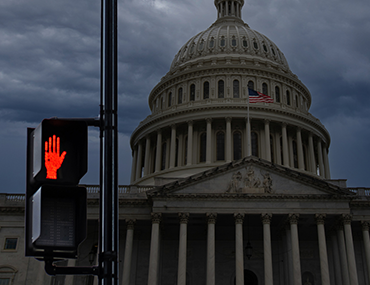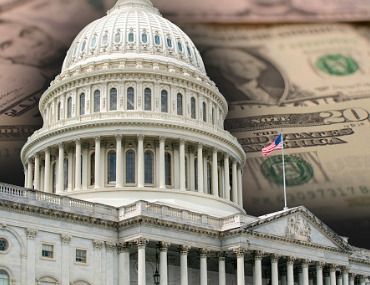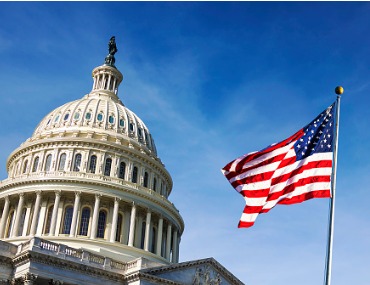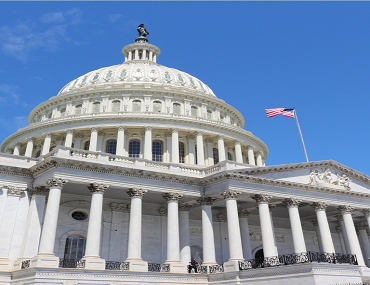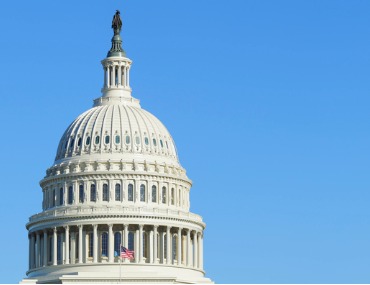

Government Finance & Policy
December 05, 2025
Assessing the Feasibility of President Trump’s Tariff Dividend Checks
President Trump has recently proposed sending out $2,000 ‘tariff dividend checks’ to eligible households, which would be funded using tariff revenue. However, the administration has not provided further details on the structure, timing or income testing thresholds, making any sort of economic inference very speculative.
October 22, 2025
The Economic & Fiscal Impacts of U.S. Defense Spending in 2026 and Beyond
The Trump administration is expected to front-load defense appropriations included in the One Big Beautiful Bill Act in fiscal year 2026, driving defense spending above $1 trillion (+15% year-on-year). We expect this to boost real GDP growth by 0.2 percentage points next year, with a larger gain in 2026 inhibited by existing production and labor capacity constraints.
September 25, 2025
U.S. Government Shutdown Risks: 2025 Edition
As has become commonplace in recent years, the federal government is once again at risk of a shutdown to kick off the new fiscal year on October 1st. There is still time for an agreement to be reached in Congress, but the current deadlock in Congress warrants consideration for what would happen should an agreement not be reached by next Wednesday.
September 11, 2025
Stablecoins Enter the Mainstream
Stablecoins are shifting from crypto-asset trading tools to a regulated part of the U.S. financial system, laying the groundwork to reshape the payments system. Digital stablecoin technology, with its potential for programmability and transparency, could make payments—especially cross-border transactions—faster, cheaper, and more reliable, benefiting remittances, business-to-business (B2B) payments, trading, and compliance processes. The recently passed GENIUS Act requires U.S. payment stablecoins to be fully backed by safe, liquid assets and strict audits, aiming to anchor trust and prevent past failures that shook confidence in the sector.
July 24, 2025
A Sea of Changes in Student Debt Market To Ramp Up Pressure on Borrowers
Student loans have been gradually returning to business as usual after prolonged pandemic relief programs. Most recently, credit reporting and unpaid debt collections have resumed, leading to a jump in delinquencies, and an increase in defaults on the horizon.
April 02, 2025
U.S. Liberation Day Binds The World To High Tariffs
The U.S. administration announced broad reciprocal tariffs today, targeting all trading partners, and not just the countries that run large trade surpluses with the U.S. The tariffs will be implemented under the International Emergency Economic Powers Act (IEEPA) of 1977.
February 21, 2025
Hurry Up & Wait: Congressional Fiscal Priorities in the First 100 Days
The 119th session of Congress is halfway through its first 100 days with a multitude of goals they want to, and in some cases need to, achieve within the coming months. However, razor thin margins of majority have complicated the ability of the Republican trifecta in the House of Representatives, Senate, and White House to implement the legislative priorities of the new federal government.
January 22, 2025
Medicaid Unlikely to Dodge the DOGE
The U.S. federal deficit widened to $1.8 trillion or 6.4% of GDP in fiscal year 2024. This is more than double the annual deficit averaged over the 50-year period preceding the pandemic, as outlays – measured as a share of GDP – remain elevated relative to revenues . In response, the Trump administration has promised to rein in all “wasteful” federal spending and has created a special task force known as the “Department of Government Efficiency” (DOGE), which will be led by Elon Musk.
January 06, 2025
Climate Policy in a 2nd Trump Term – What’s on the Chopping Block?
Climate policy is set to take a major U-turn under Donald Trump’s second term. The president-elect will likely prioritize rolling back regulatory powers and direct spending that expanded significantly under President Biden.
November 19, 2024
U.S. Treasury Market Uncertainties: Higher Supply and Shifting Demand
Higher structural deficits are expected to push U.S. federal government debt as a share of GDP to 100% next year and 122% by 2034. This translates to a roughly $22 trillion (or 85%) increase in the supply of U.S. Treasuries between 2024 and 2034.
October 15, 2024
U.S. Presidential Elections and Stock Markets: It’s the Economy…Obviously
The U.S. Presidential election is just weeks away and investors are quickly turning their attention to the potential implications for financial markets. Would a Trump or Harris win be better for the stock market?
September 13, 2024
U.S. 2024 Election: Economic and Financial Implications
Elections matter for the economy, but financial markets are likely to be particularly attuned to the current election cycle given America’s unsustainable fiscal trajectory. The make-up of Congress will determine how much of the future President’s agenda can be implemented. A divided Congress will likely force the next President to make significant concessions relative to their current platform proposals.


